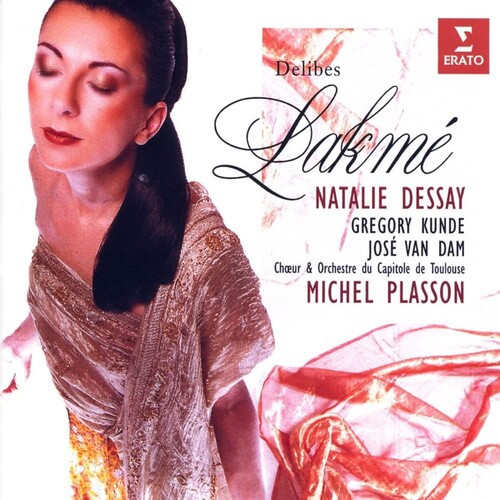Show results for
Deals
- 4K Ultra HD Sale
- Action Sale
- Alternative Rock Sale
- Anime sale
- Award Winners Sale
- Bear Family Sale
- Blu ray Sale
- Blues on Sale
- British Sale
- Classical Music Sale
- Comedy Music Sale
- Comedy Sale
- Country Sale
- Criterion Sale
- Electronic Music sale
- Fantasy Film and TV
- Folk Music Sale
- Hard Rock and Metal Sale
- Horror Sci fi Sale
- Jazz Sale
- Kids and Family Music sale
- Kids and Family Sale
- Metal Sale
- Music Video Sale
- Musicals on Sale
- Mystery Sale
- Naxos Label Sale
- Page to Screen Sale
- Paramount Sale
- Pop and Power Pop
- Rap and Hip Hop Sale
- Reggae Sale
- Rock and Pop Sale
- Rock Legends
- Soul Music Sale
- TV Sale
- TV Sale
- Vinyl on Sale
- War Films and Westerns on Sale

Delibes: Lakme
- Format: CD
- Release Date: 9/29/2023

Delibes: Lakme
- Format: CD
- Release Date: 9/29/2023
- Label: Erato
- Number of Discs: 2
- UPC: 190296279096
- Item #: 2517134X
- Genre: Classical
- Release Date: 9/29/2023

Product Notes
Opera audiences in 19th-century Paris may never have visited India, but they loved to dream about it. After the successes enjoyed by Lespêcheurs de perles and Le roi de Lahore Delibes knew what he was doing when he chose to set an adaptation of Pierre Loti's exotic Indian novel Rarahu and duly scored a hit with his opera Lakmé at the Opéra-Comique in 1883. The opera is nothing without a star in the title-role.
Natalie Dessay is certainly that and yet she never fails to remember that Delibes's heroine must be fragile and sensitive. Her Bell Song, brilliantly sung, is also intent on telling a story. Her singing of the death scene, with its delicate fil de voce perfectly poised each time the high A comes round, is heartfelt and leaves no doubt that this is a Lakmé who deserves to go to heaven. EMI found a worthy tenor to partner her. Gregory Kunde, as Gérald, is at ease at the top of his voice. At the first entrance of the colonial Brits, Frédéric describes Gérald as a poet and Kunde lives up to the promise by phrasing his opening solo, 'Fantaisie aux divins mensonges', with poetic sensibility. In the duets he and Dessay are tender young love personified. The supporting cast is also a decent one.
Michel Plasson gives the music room to breathe and is able to conjure a dreamy atmosphere in the scenes of romance. His Toulouse orchestra is adequate, if not exceptional, and the recording is of a good standard. What reason is there to resist?

